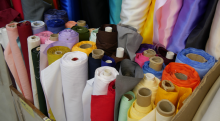NEXBTL™ Technology for Renewable Diesel and Sustainable Aviation Fuel
Neste is a company that produces renewable diesel and sustainable aviation fuel through its proprietary NEXBTL™ (Next Generation Biomass to Liquid) technology. This innovative platform allows the company to convert a wide variety of renewable fats and oils into premium-quality products, such as renewable fuels and feedstocks for polymers and chemicals.

